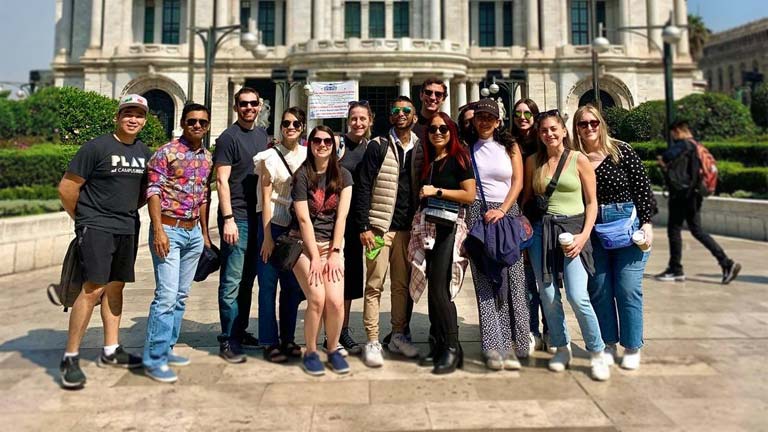
These trips often foster crucial relationships and facilitate vital deals. However, managing expenses for group travel can be a difficult task. With careful planning and strategic choices, business travelers can save on group travel expenses without compromising the trip’s quality and goals. Here are five cost-saving tips for group business travel that can help organizations streamline their expenditures.
Tip 1: Implement a Clear Travel Policy
Before you plan your trip, you should establish a travel policy for your organization. A comprehensive company travel policy can help you manage and control travel-related expenses. This policy should include guidelines on preferred airlines, accommodation options, meal allowances, and transportation arrangements. By setting clear boundaries and expectations, companies can ensure that employees adhere to predetermined budgetary constraints. Encouraging employees to make cost-conscious decisions and providing them with a transparent framework for reimbursement can foster a culture of fiscal responsibility within the organization. Regularly reviewing and updating the travel policy in response to evolving market dynamics and business requirements is crucial in maximizing cost-saving opportunities and maintaining fiscal discipline.
Tip 2: Efficient Accommodation Selection
When planning a group business trip, one of the most significant expenses can be your hotel accommodations. Opting for lodging that offers suitable amenities at a reasonable cost can impact the overall budget significantly. Companies can save money by selecting hotels that offer group booking discounts. Some hotels will negotiate for lower rates based on the duration of the stay. Many large hotel chains offer corporate, group, and other discounts. Additionally, you can leverage corporate partnerships with hotel chains. Some hotels specifically cater to business travelers and offer meeting rooms, business centers, print shops, and restaurants on-site. For big corporate events, you may save money by using the hotel’s business spaces for your company meetings or presentations. If your destination does not offer appropriate hotel accommodations, you can explore alternative options like corporate housing or vacation rentals. These accommodations also can yield substantial savings.
Tip 3: Consider Hiring a Private Charter Jet
While it may seem counterintuitive at first glance, hiring a private jet charter for group business travel can result in substantial cost savings. Private charter jets offer the advantage of flexibility. Groups can create tailored itineraries that align with their specific business needs. Private charters often fly from smaller airports that cater to business travelers. You’ll avoid the big crowds and long security lines of major commercial airports. You also can eliminate or reduce inconvenient layovers. With the elimination of layovers and the ability to access smaller airports, private charter jets can reduce travel time and associated costs significantly. Moreover, the option to share the cost among several departments or travelers can make this an efficient and economical choice. You and your team will save time and increase your productivity during the trip.
Tip 4: Opt for Economical Ground Transportation Options
Navigating transportation at the destination can be an unexpected cost for group business travelers. To optimize expenses, consider utilizing public transportation wherever feasible. Additionally, negotiating group rates with local transportation services or car rental agencies can result in cost-effective solutions. Employing shuttle services for the group’s transportation needs is another budget-friendly alternative. Shuttle services are useful when traveling between the airport, hotel, and business venues.
Tip 5: Carefully Plan Business Dinners and Meals
Dining is a major expense during group business trips. To curtail these expenses, consider pre-arranging meals with hotels or local restaurants at negotiated rates. Explore options such as inclusive meal packages or corporate dining discounts to manage costs effectively. You can encourage team members to explore local eateries for cost-effective options. If employees are responsible for arranging their meals, make sure you provide employees with a maximum budget per meal as part of your travel policy.
Final Thoughts
By implementing these cost-saving strategies, businesses can manage their travel expenses while ensuring a seamless and productive experience. Prioritizing strategic planning, flexibility, and negotiations can lead to significant savings without compromising the quality of the travel experience. Use group discounts when possible. With prudent decision-making, you can optimize your business’s group travel budgets. When you allocate resources more efficiently, you contribute to the overall success of the company’s business endeavors.




